Promoting sustainable cocoa trade in Ghana
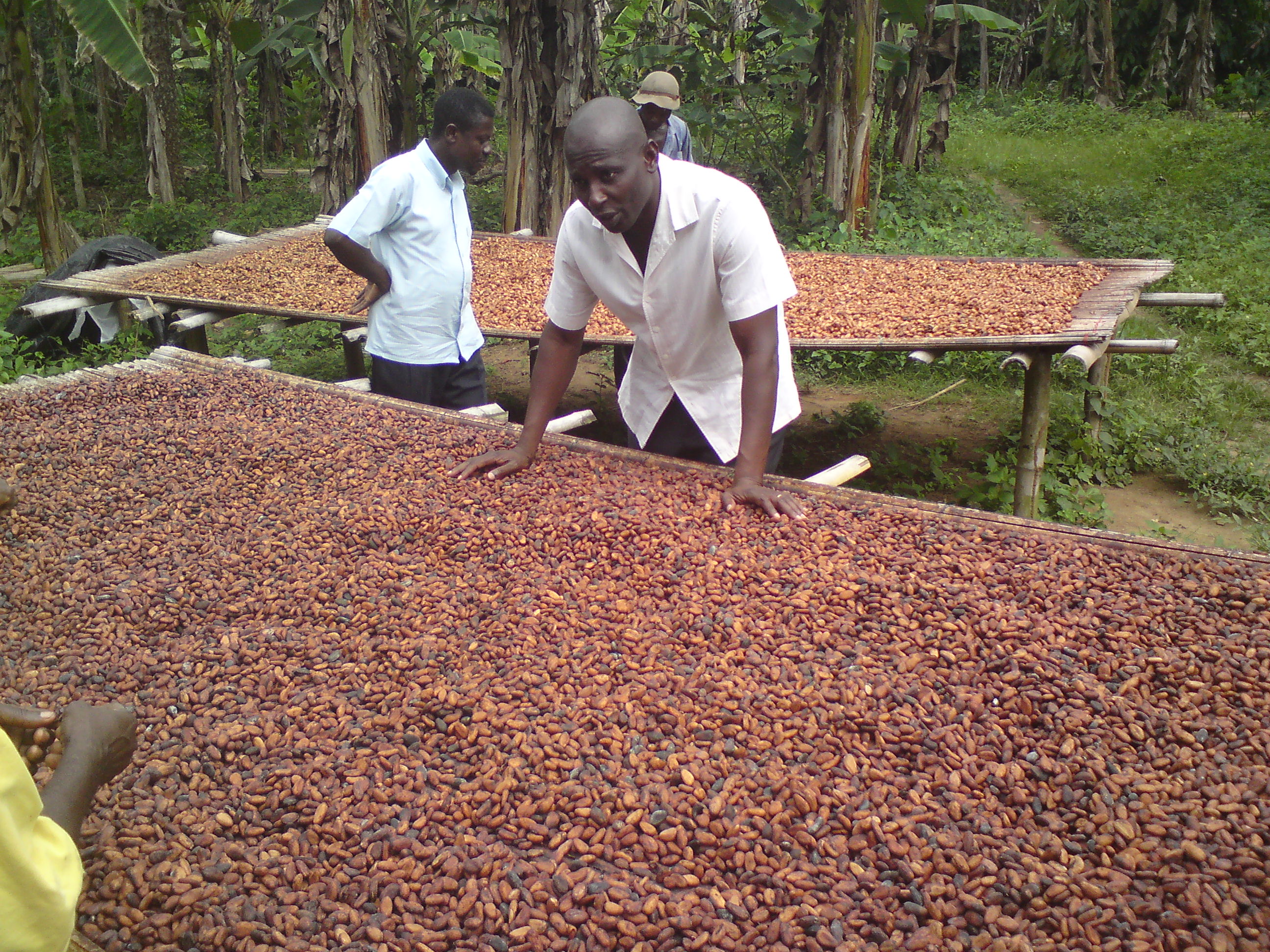
Ghana is the most important supplier of cocoa for Swiss chocolate makers. But the future of cocoa growing in the west African country is uncertain.
That’s why a joint Swiss-Ghanaian project is attempting to rejuvenate the cocoa industry which is facing the problems of a shortage of young farmers and plantations full of old trees.
“Fair trade begins with the scales,” Yayra Glover says. swissinfo.ch meets the entrepreneur in Ateibu, a remote village in the Eastern Region of Ghana, an administrative area of the country that is one of the largest cocoa growing places in the world.
Glover is standing in a hut with a corrugated roof. This is where his company buys the cocoa beans from farmers.
There is an acidic odour of fermenting beans in the air. Along the walls are sacks piled high, and in the middle industrial scales. With the help of calibrated weights, the suppliers can be shown that the scales have not been manipulated, which is often the case in the trade of cocoa beans.
Glover is a businessman with a vision. After working in Switzerland for more than 20 years where he studied law and political science, he returned to his homeland to promote the sustainable cocoa trade.
“We show the farmer how cocoa cultivation can be a serious business in which you can make good money,” the 46-year-old explains. “But we first have to tell him that he can be proud of his cocoa.
Pesticide free
“The reason is that there are buyers in Switzerland prepared to pay more than the market price, as long as the cocoa is grown without the use of child labour and pesticides.”
Yayra Glover Ltd. is already working with 2,500 small farm holdings which run organic cocoa farms. More are being added all the time.
“We are constantly receiving requests from traders who are looking for these kinds of beans,” explains Balz Strasser, CEO of Pakka, Glover’s Swiss partner.
The young Zurich company is specialised in the development of organic and fair trade projects in countries in the south, particularly products like nuts, dried fruits and cocoa.
“It’s extremely difficult for the producers in these countries to get a foot in the door of the European market,” Strasser says. “We support them and set up the necessary supply chain.”
The Swiss-Ghanaian organic cocoa project is in a phase where it is expanding quickly. With the support of the economic cooperation and development assistance of the State Secretariat for Economic Affairs (Seco), the two companies are enlarging their fields of operation to the Volta Region in the southeast of the country.
Traceability
Key to success is the traceability of the beans. Using GPS-equipped devices, Glover’s staff measure the plantations of the participating farmers, which allows Glover’s company to calculate the size of the harvest. This helps prevent farmers from adding beans from non-certified trees to their organic harvest.
Records are kept of the deliveries of each farmer, and a code in black paint is put on every bag that leaves a Glover plant. It’s a simple but effective system. “There are no other suppliers in Ghana who can trace the origin of the beans so precisely,” Strasser says.
Awareness of cocoa growing conditions is becoming more important since chocolate makers have increasingly found themselves under fire from NGOs for supporting child labour. And many consumers want to be certain that the chocolate they buy has no bitter aftertaste.
Chocolate makers are also worried about potential shortages of the most important ingredient used in their product. Global demand is growing but supply is becoming increasingly uncertain.
It’s not only in the Eastern Region that cocoa trees are over-aged, providing less and less fruit. What is more, the average age of a Ghanaian cocoa farmer is 55 – just three years below the average life expectancy.
No wonder that chocolate companies are avoiding middle men and establishing direct links with cocoa producers.
Child labour
Not far from Glover’s base in Ateibu are the buildings housing the local primary school. Lydia Baffour Awuah, a member of Glover’s staff, is a regular visitor who comes to talk about the issue of child labour.
The young agronomist explains that the worst form of child labour – through human trafficking – doesn’t exist in Ghana. But she says all forms of work are forbidden which hinder a child’s development. Children must attend school regularly and are not allowed to do heavy physical work.
“A lot of tact is needed when talking about child labour,” she explains. “Children should be able to work on their parents’ farm to learn the secrets of cocoa growing.” If this knowledge is lost, the future of cocoa growing will be in doubt.
She is herself an excellent example of how young Ghanaians believe in cocoa growing as a way of countering the widespread depopulation of the countryside. Like many Glover employees she comes from the capital, Accra. But today, she is fully engaged in agriculture.
“I want to buy my own land as soon as possible, and plant trees. I see my future in the cocoa business and not in the city,” she says.
Ghana, in West Africa, has long played an important role in the cocoa trade. Only Ivory Coast exports more cocoa beans than Ghana.
The Ghana industry consists of hundreds of thousands of small-scale farmers. The last harvest saw the million-ton mark surpassed for the first time.
A Swiss company, Basler Handelsgesellschaft (BHG), played a decisive role in Ghana’s rise to prominence as a cocoa producer. Founded by the Basel Mission, the company shipped the first sack of Ghanaian cocoa to Europe in 1893.
Historian Andrea Franc showed in her study, “How chocolate came to Switzerland”, that BHG ensured the survival of the Swiss chocolate industry thanks to its direct imports of Ghanaian cocoa.
(Adapted from German by Dale Bechtel)

In compliance with the JTI standards
More: SWI swissinfo.ch certified by the Journalism Trust Initiative
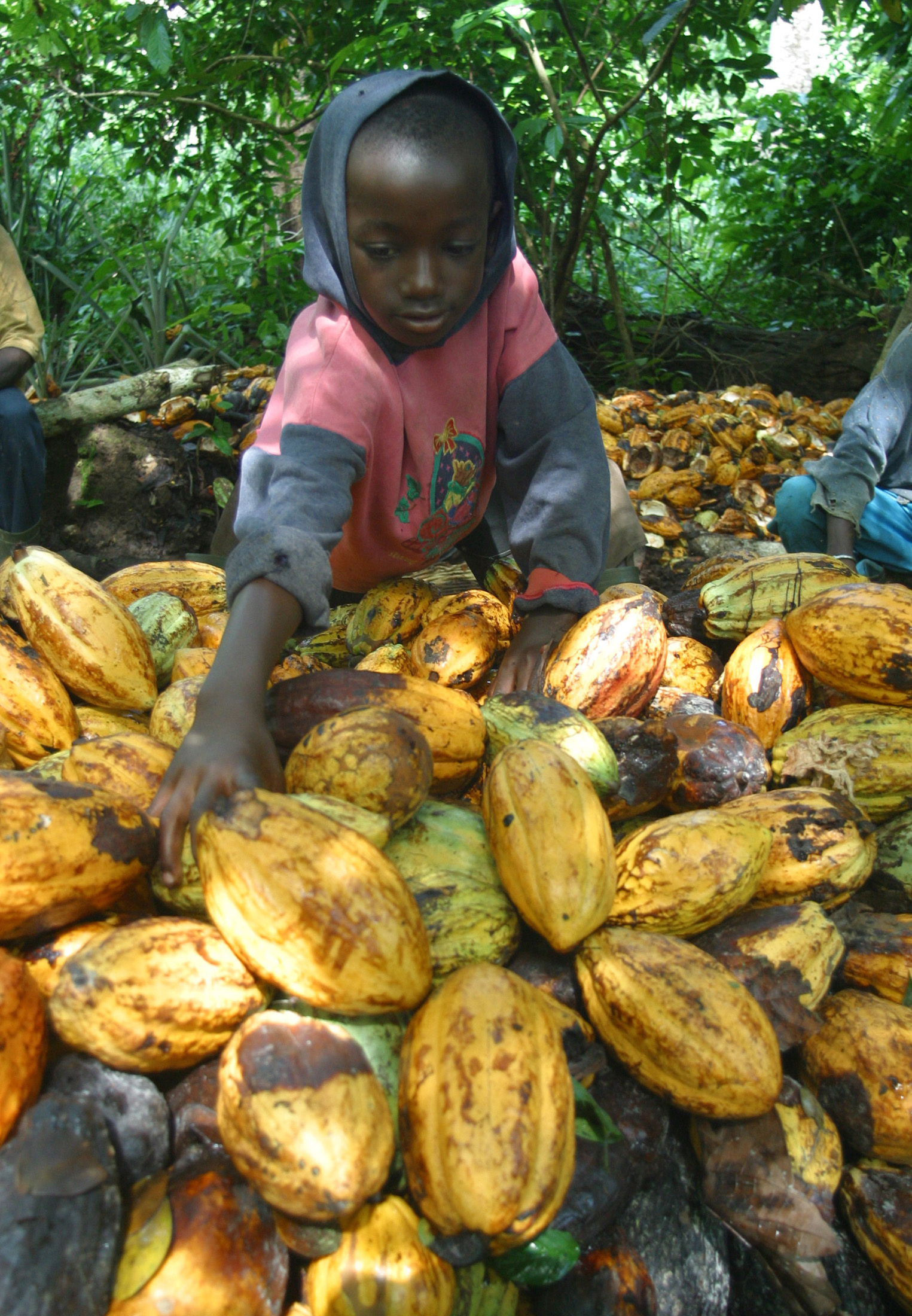
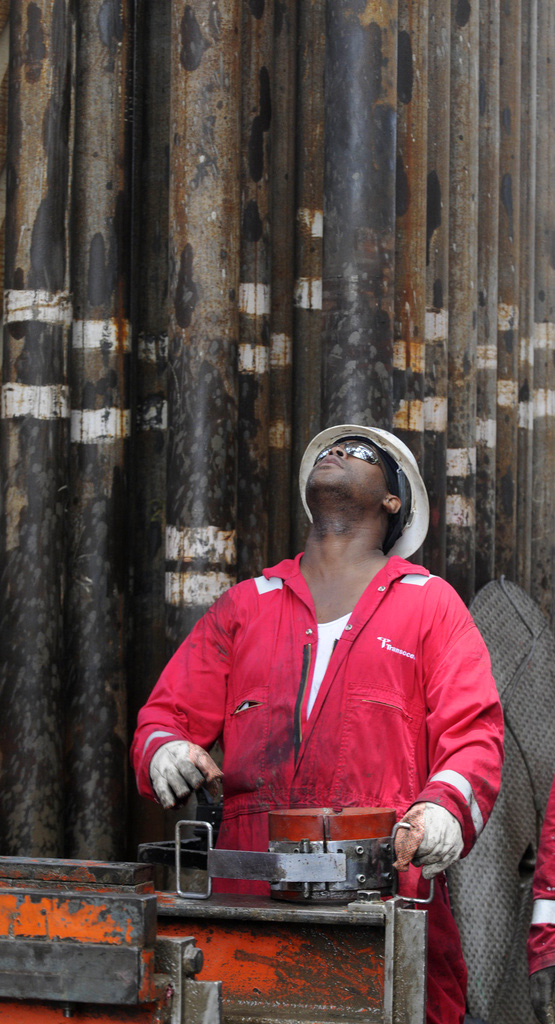
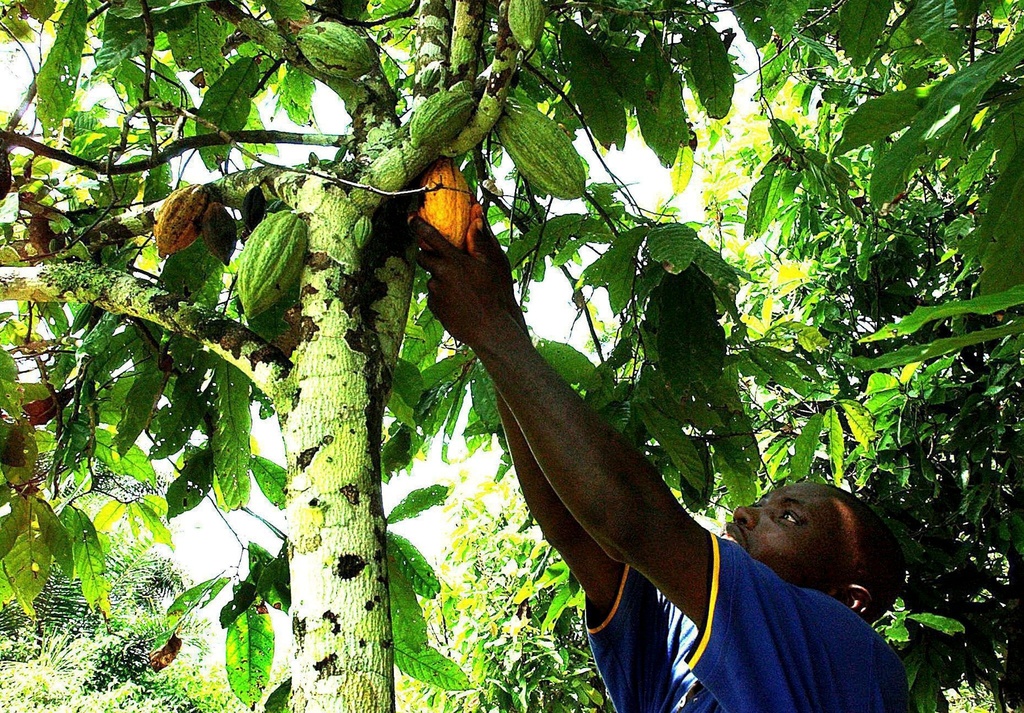
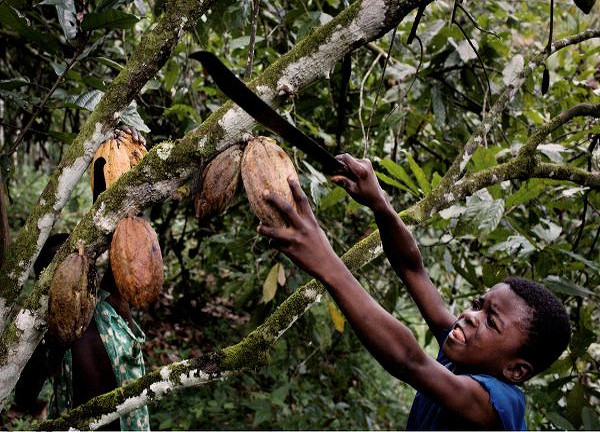
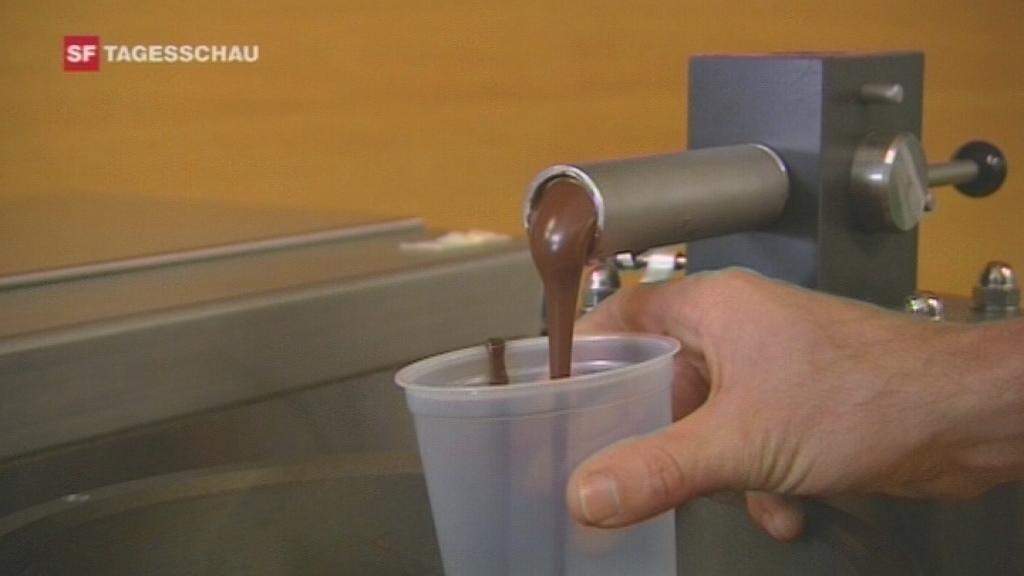

You can find an overview of ongoing debates with our journalists here. Please join us!
If you want to start a conversation about a topic raised in this article or want to report factual errors, email us at english@swissinfo.ch.